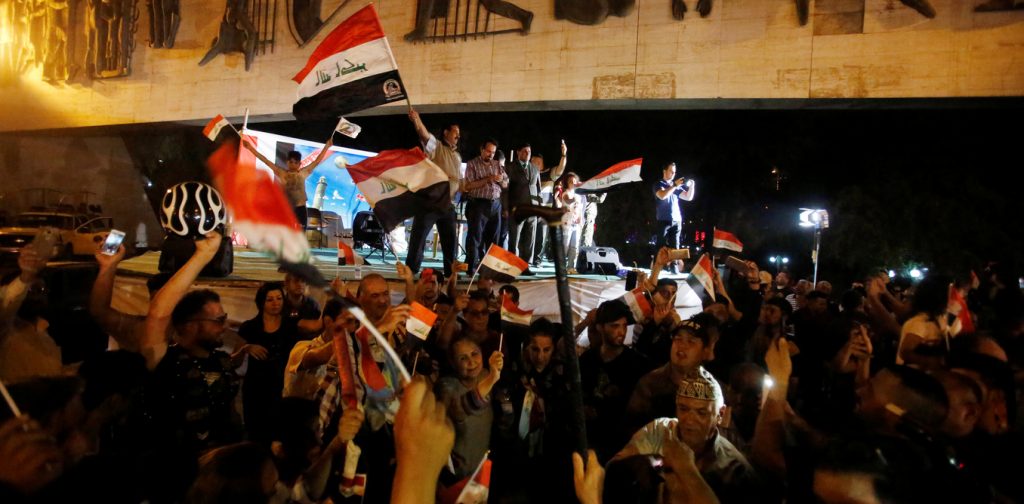
The belief by Iraqi soldiers and militiamen that their own government is too corrupt to keep captured ISIS fighters in detention is one reason why the bodies of ISIS suspects, shot in the head or body and with their hands tied behind their backs, are found floating in the Tigris river downstream from Mosul. Revenge and hatred provoked by ISIS atrocities are motives for extrajudicial killings by death squads, but so is distrust of an Iraqi judicial system, which is notoriously corrupt and dysfunctional.
Paranoia at the end of a very violent war partially explains why so many Iraqis are convinced that dangerous ISIS members can always bribe their way to freedom. Dozens of posts on social media from Baghdad allege that suicide bombers who blow themselves up killing many civilians had previously been detained by the security forces and released in return for money. “We die in Baghdad because of corruption,” reads one post, frequently shared with others. One tweet says: “Daesh [ISIS] pays the government and kills us in Baghdad.”
Fears may be exaggerated, but are not entirely without substance. ISIS may have suffered heavy losses in Mosul, but can still operate. A senior Kurdish official said that “recently, during the funeral of a leader of the Shammar tribe in Rabia, no less than 17 ISIS suicide bombers were discovered. This shows they can still plan and carry out operations even if they are weaker.”
Anti-ISIS residents in Mosul are now making the same allegation. “I know two men in my neighbourhood notorious for being members of Daesh who have just been released by the government,” complains Saleem Mohammed, a resident of the Nabi Yunus district in east Mosul. “One of them used to go on Daesh patrols in the markets here to look for people who were smoking cigarettes.” He added that people were frightened that the suspected collaborators, who had been freed, were members of ISIS “sleeper cells” or had now been recruited as Iraqi government spies.
Saleem says that an important cause of distrust between those who had always opposed ISIS and those who had joined it or collaborated with it is that the latter had often developed prosperous businesses during the three years that ISIS was in power. He said that “many of these collaborators have shops in the markets and people buy from them, though they may shun the owners”. He knew one man who had been poor before ISIS arrived, but made money working as a security man at ISIS checkpoints where large bribes were often paid for free passage. The man had been arrested, was released and has now moved with his family to Turkey.
ISIS commanders and militants often came from impoverished Sunni villages on the outskirts of Mosul that look like a collection of huts. While they controlled Mosul there was hostility between them and the traditional inhabitants of the city. “What is provoking particular anger in Mosul is that well-off Daesh families are being released and coming back to live in well-furnished apartments, while poor people are still living in the camps,” says Saleem.
The situation in east Mosul is far better than in the west of the city because it was always wealthier, saw less destruction from air strikes and artillery, and has been free from ISIS control for six months. Though the Iraqi government claims to have won a complete victory over ISIS in the Old City in west Mosul, there is still the occasional sound of gunfire and air strikes. There is an exodus of people across the Tigris river from neighbourhoods in the west that are damaged but not totally destroyed to east Mosul where there is electricity and water. A shortage of accommodation for those moving within the city has led to a tripling of rents.
A crucial boost to the economy of Mosul is that the government is paying back salaries for public employees that were not paid under ISIS rule. Education, health and municipal workers are getting their salaries leading to much more activity in the local markets. People have started buying cars and property again and there are long queues of trucks bringing goods from Irbil and Kurdish controlled areas into the city.
